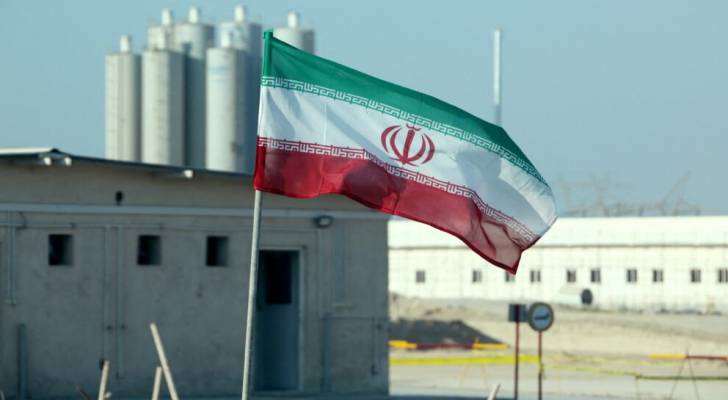Iran nuclear installations 'should not be attacked': IAEA chief
Iran’s Foreign Minister, Abbas Araghchi, made it clear Thursday that the country will not engage in nuclear negotiations under "intimidation," as he held important talks with Rafael Grossi, the head of the International Atomic Energy Agency (IAEA).
The meeting took place in Tehran just weeks before US President-elect Donald Trump is set to take office, heightening concerns about the future of Iran’s nuclear program and the potential for escalating tensions in the region, according to AFP.
Grossi emphasized the urgent need for diplomatic solutions to prevent a new conflict, particularly in light of Israeli Occupation's ongoing war against Hamas in Gaza and Hezbollah’s presence in Lebanon. He stressed that finding results in the nuclear discussions with Iran was vital to avoid further destabilization.
- Israel threatens Iran -
Grossi’s visit comes after 'Israeli' Minister Israel Katz publicly threatened that Iran was more vulnerable than ever to strikes on its nuclear facilities, claiming that 'Israel' now has an opportunity to achieve one of its top priorities.
During the meeting, Grossi reiterated his position that Iran’s nuclear facilities should not be subjected to military attacks, highlighting the severe radiological consequences such attacks could have. He also pointed to the IAEA’s consistent stance on the matter, which has been supported by its member countries.
- How does Trump fit in? -
However, the timing of Grossi’s visit is critical. Trump, who abandoned the 2015 nuclear deal with Iran during his first term, is expected to adopt a more hardline approach, giving 'Israel' more leeway in its actions against Iran. Grossi’s message to Iran is clear: dialogue and negotiation remain essential for regional peace and the avoidance of further military escalation.
Araghchi, who was Iran's chief negotiator during the 2015 nuclear deal, emphasized that Iran is still "willing to negotiate" based on its national interests and inalienable rights but reiterated that the country would not be forced into negotiations under pressure or intimidation. His remarks signal Iran’s continued commitment to diplomatic channels but also a firm refusal to bow to external threats.
In a statement following the meeting, Araghchi expressed the importance of "courage and good will" in future negotiations, asserting that Iran has never left the negotiation table regarding its peaceful nuclear program, despite the US’s withdrawal from the agreement in 2018. He also clarified that Iran would not return to talks under the same conditions that led to the collapse of the deal.
Iran has been accused of expanding its uranium enrichment program significantly since the US withdrawal. The IAEA reports that Iran has stockpiled uranium enriched to 60 percent purity, a level alarmingly close to the 90 percent threshold needed for a nuclear weapon. Iran maintains that its nuclear program is for peaceful purposes, but the country’s nuclear advances have sparked concerns across the international community.
- Tension-filled time -
Grossi’s visit comes at a time when tensions are high between 'Israel' and Iran, particularly after both countries exchanged unprecedented direct attacks earlier this year. This has only added to the growing fears of a broader conflict in the region. The IAEA chief has warned that the "margins for maneuver" in the negotiations are rapidly shrinking and emphasized the urgent need to explore diplomatic solutions before the situation deteriorates further.
Despite calls from some Iranian lawmakers to revise the country’s nuclear doctrine and potentially develop nuclear weapons in response to Israeli Occupation's missile strikes, Grossi has consistently called for more cooperation from Iran. In recent years, Tehran has blocked IAEA surveillance devices and limited access to its nuclear facilities, further complicating efforts to reach an agreement.
In his meeting with Grossi, Iran’s Atomic Energy Organization head, Mohammad Eslami, stated that Iran would take "immediate countermeasures" against any intervention from the IAEA's board of governors. This reflects Iran’s growing frustration with what it perceives as external interference in its nuclear affairs.
As Grossi’s visit continues, the international community remains on edge, hoping that the IAEA’s efforts can prevent a dangerous escalation in Iran's nuclear program and avert a broader conflict in the Middle East. The future of the 2015 nuclear deal remains uncertain, but Grossi’s visit signals that there are still efforts underway to maintain diplomatic channels open, despite the challenges ahead.




